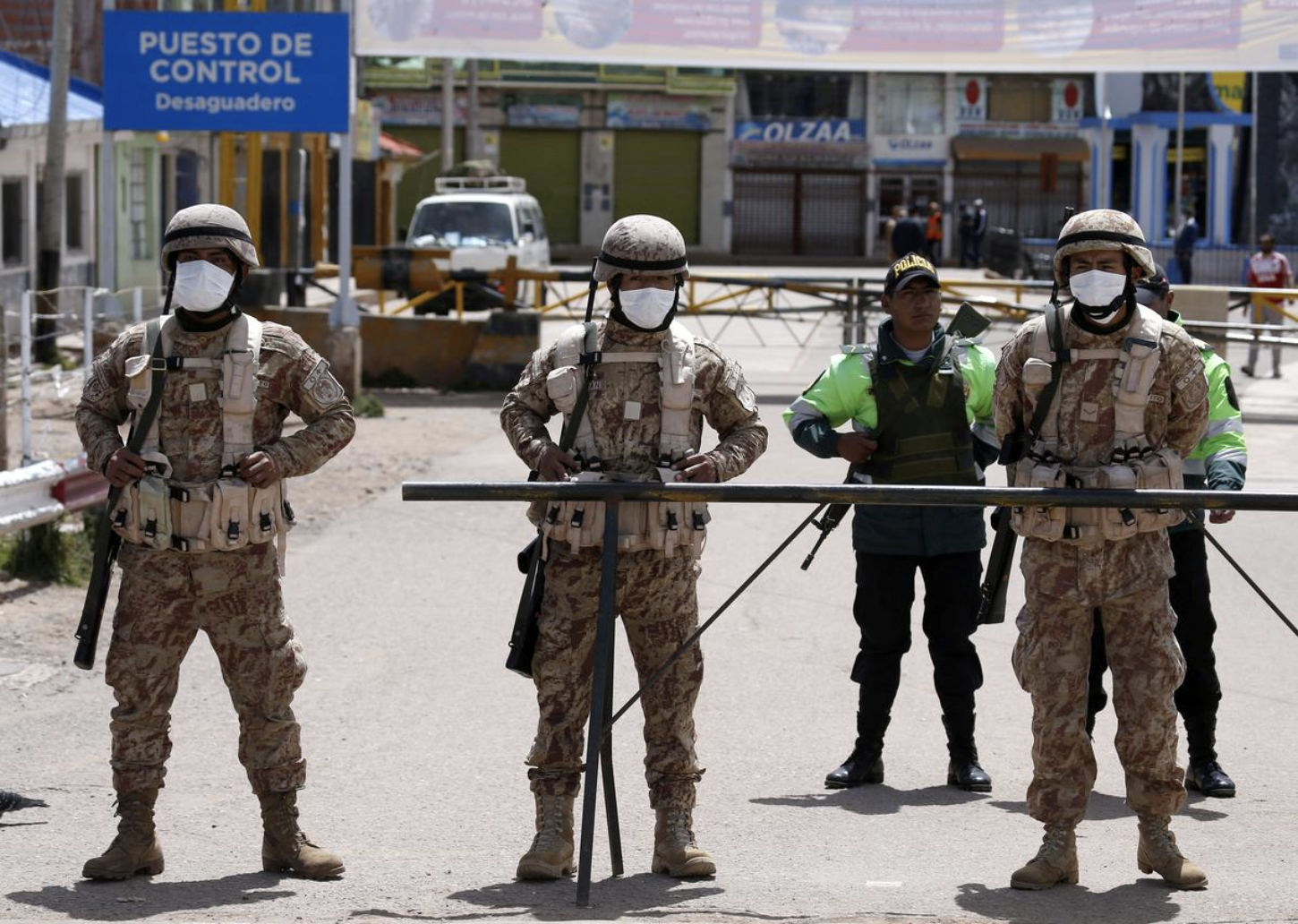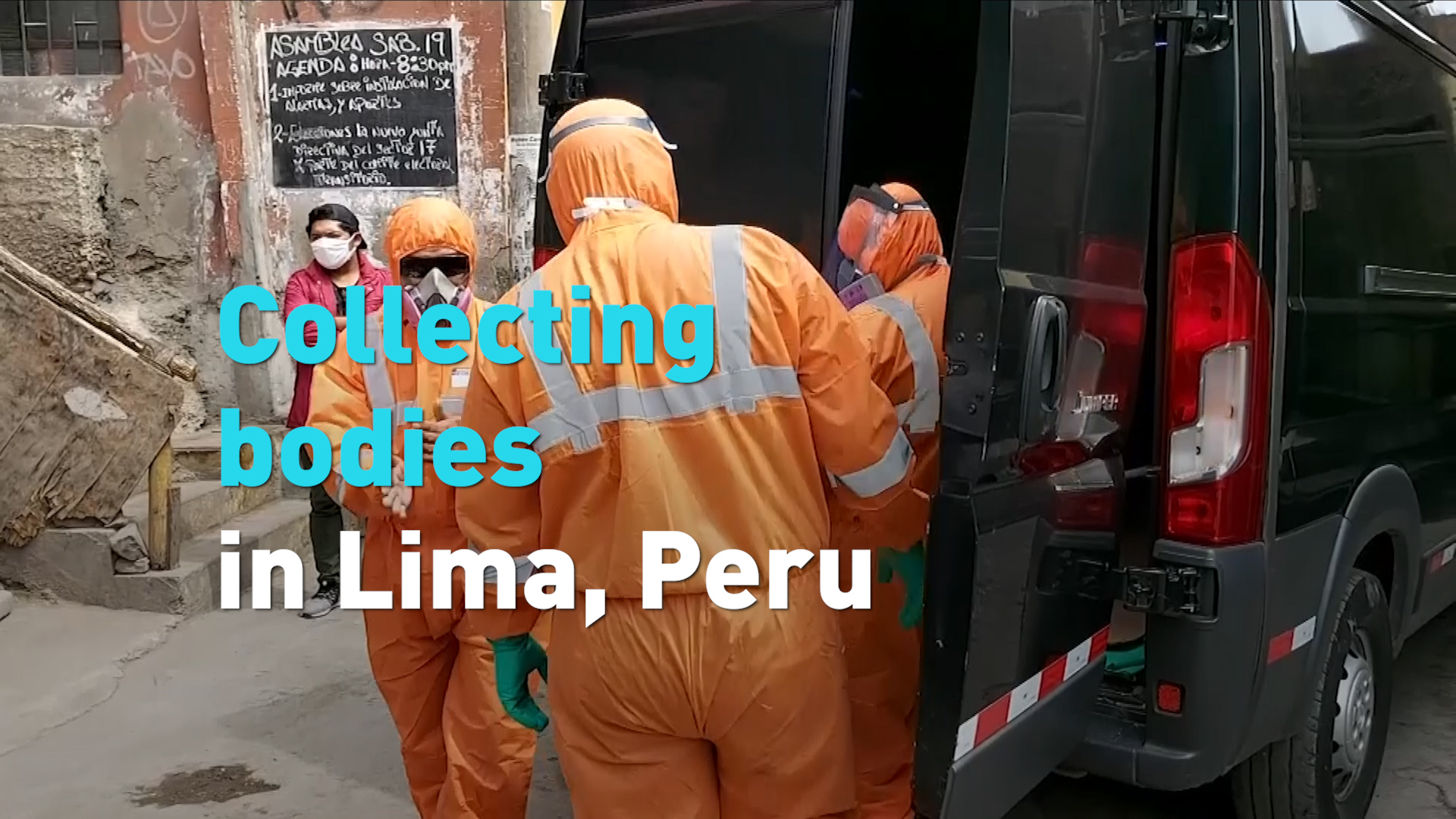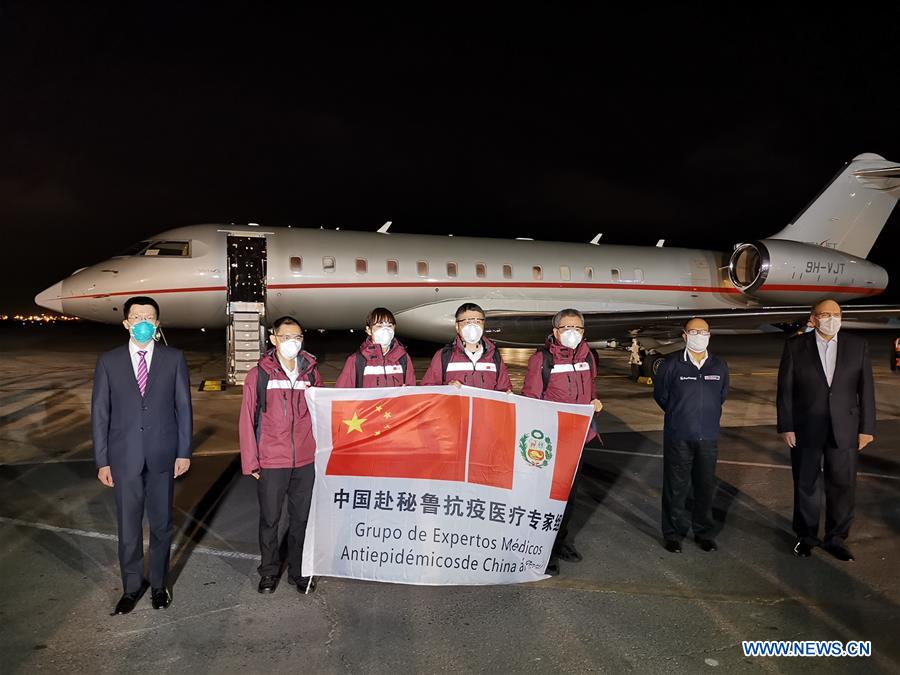Editor's note: This is the 68th article in the COVID-19 Global Roundup series. Here is the previous one.

Peruvian soldiers stand at the border between Peru and Bolivia after their government's announcement of the border closure in a bid to slow the spread of the coronavirus, in Desaguadero, Bolivia, March 17, 2020. /Reuters
Peruvian soldiers stand at the border between Peru and Bolivia after their government's announcement of the border closure in a bid to slow the spread of the coronavirus, in Desaguadero, Bolivia, March 17, 2020. /Reuters
Peru on Friday extended its state of emergency and a nationwide lockdown for the fifth time to fight the coronavirus pandemic until the end of June, marking one of the longest periods of mandatory isolation in the world.
The Andean nation, which began the lockdown in mid-March, will have lived under it for more than three-and-half months by a June 30 expiration, outlasting restrictions in Italy, Spain and China, some of the hardest hit countries in the pandemic.
As of Monday, Peru has reported 119,959 cases of coronavirus, the second most in Latin America after Brazil, including 3,456 deaths.
The Americas is now at the epicenter of the global coronavirus pandemic, with the region seeing coronavirus case totals and deaths rise faster than any other region.
00:58

President Martin Vizcarra said that the latest and fifth extension, which is more than a month beyond the previous expiration date of May 24, would come with the reopening of certain economic activities, including household appliance sales, hair salons and dental services.
Restrictions on some sports will also be relaxed, including professional soccer, though games will take place in stadiums without an audience.
"We must move to a new coexistence, which allows us as a society to be more caring, more responsible, disciplined, respectful of the minimum standards of behavior so as not to harm the people we love the most," Vizcarra said.
On Saturday, a Chinese medical team arrived in Lima to help Peru fight against the COVID-19 pandemic.
Related readings:
China supports Latin America in COVID-19 fight
How do Peruvians keep the faith under a coronavirus lockdown?
COVID-19: Latin America becomes new epicenter, U.S. enters holiday

Chinese medical team members pose for a group photo upon their arrival in Lima, Peru, on May 23, 2020. /Xinhua
Chinese medical team members pose for a group photo upon their arrival in Lima, Peru, on May 23, 2020. /Xinhua
School system takes to airwaves
The new school year was scheduled to start on May 16. But the president declared a state of emergency and a strict nationwide lockdown on May 15, disrupting the plans of parents and students in the whole country.
While other countries have experimented with delivering classes to children online, authorities in Peru knew this was not an option for a country where more than 40 percent of the population does not have internet access.
Peru's Ministry of Education set up a TV program called Aprendo en Casa (I Learn at Home), aiming to put on air the core syllabus of Peru's primary and secondary school curricula, amounting to six hours of TV programming every weekday.
"Television is one of the most used mediums," explains Diana Marchena, planning coordinator at Ministry of Education. "The internet doesn't have the same reach here as television, so we were determined that a child's progress must not depend on whether they have access to the internet."
To ensure Aprendo en Casa could reach as many children in the country as possible, the government coordinated closely not only with TV Peru, but with private channels and radio stations as well.
The show has quickly become one of the most-watched TV programs in Peru. It has provided schoolteachers across the country with a vital resource with which to maintain the progress of their students.
But there are still children left behind. The limitations of the government's strategy have highlighted deep structural inequality in the country.
"The children I teach have nowhere near the same resources that children in cities have," says Marlith Norabuena, a teacher in rural Peru. "For example, when it rains or there are changes in the weather, the TV, radio and internet signals – which are already very weak – just stop working altogether."

Jaime Rolando Urbina Torres, mayor of a small town in Peru, jumped into an open casket and pretended to be dead when police arrived to arrest him for breaking curfew, May 21, 2020. /National police of Peru
Jaime Rolando Urbina Torres, mayor of a small town in Peru, jumped into an open casket and pretended to be dead when police arrived to arrest him for breaking curfew, May 21, 2020. /National police of Peru
The absentee mayor
The country is taking its lockdown rule seriously, except Mayor Jaime Rolando Urbina Torres, the mayor of a small town in Peru.
Torres was pictured lying in an open casket wearing a face mask by officers who came to arrest him on Monday night in the town of Tantara, in the south of the country.
Police say he violated curfew and social distancing laws and was drunk when he was arrested. It is not clear why there were open caskets close at hand.
The town was officially placed into lockdown two months ago with the whole country. However, according to the locals, Torres has spent only eight days in the town since the lockdown.
The absentee mayor was hauled to a town meeting on May 9 to defend himself, when he unleashed a series of angry tirades against locals.
According to local media, he was repeatedly shot down by his own officials when he gave excuses for failing to open emergency coronavirus quarantine shelters. He was also accused of failing to set up measures to screen people from outside the town.
(With input from agencies)